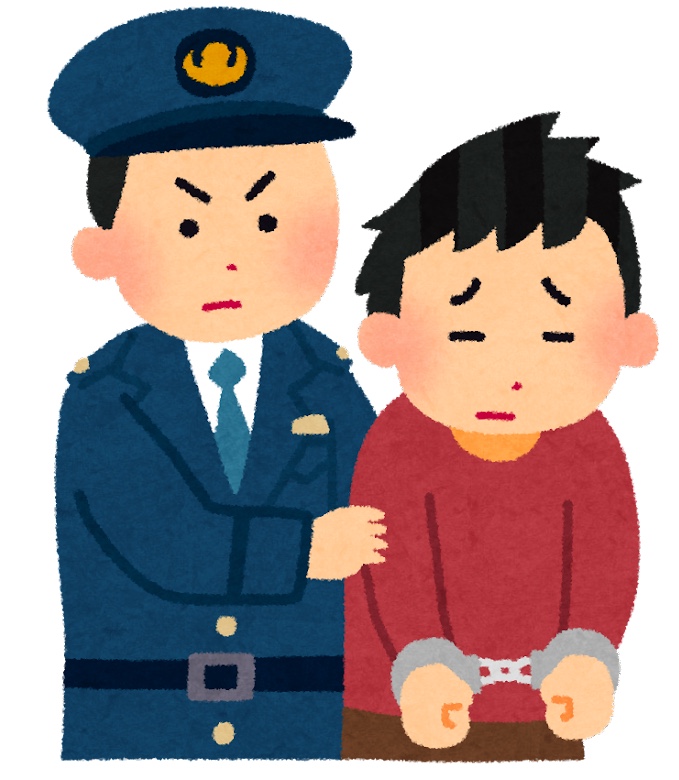Have you ever heard of the International Crime Victimization Survey? It is a survey conducted by the United Nations Interregional Crime and Justice Research Institute and the United Nations Office on Drugs and Crime for the purpose of international comparisons on crime.
The following is a summary of the national comparison data reported by the Legal Research Institute in its “Research Division Report 39” in 2008.
Comparisons among countries are difficult due to differences in crime laws and statistical systems. The survey was conducted by directly asking citizens of each country whether or not they had been victims of each crime, using the same questionnaire.
Of the 12 types of crimes covered, the highest victimization rates in Japan were bicycle theft (5.1%), consumer victimization (fraud, etc.), (1.9%) sex crimes against women (1.3%), and car theft (1.1%).
The OECD average was much higher for consumer damage at 10.4%, and personal property theft (e.g., left behind) and theft by slipping was the most common at 3.7%. Although many people have experienced being left behind, etc., as is customary in Japan, when traveling abroad to Europe and the U.S., the difference in the rate of personal property theft/surreptitious damage abroad is significant: 3.3% in France, 3.0% in Germany, and 4.8% in the U.S., compared to 0.3% in Japan.
The second most common crimes after personal property theft/pickpocketing on the OECD average are car theft, bicycle theft, assault/threats, corruption, and sex crimes followed by car theft, bicycle theft, assault/threats, corruption, and sex crimes.
Only bicycle and motorcycle thefts are above the OECD average, while all other crimes are below the OECD average, giving Japan an international reputation as a low crime country.
Japan’s Criminal Policy
Japanese society is more communal than that of the United States.
This is because offenders rarely receive prison sentences and are often given a suspended sentence. Under the probation officer and BBS systems, there are many volunteers, and the attitude of trying to reintegrate those who are rehabilitated and rehabilitated into the community permeates society. Communities are united in their efforts to prevent juvenile delinquency, etc.
Japan’s crime rate is lower than other countries because if offenders are remorseful and motivated to rehabilitate themselves, the community will not reject them from society.
Cooperating Employers
Next, we heard from a cooperating employer who takes in probationers from the probation office and teaches them social skills and regularity of life through work.
Yoshihiro Noguchi, owner of Noguchi Sekiyu, has employed more than 140 juveniles and probationers at three gas stations in Kitakyushu City over the past 25 years.
Although my business is a gas station, I have always hired subjects referred by the Police Support Center or probation attendants (lawyers) after interviewing them, and I do not fire them.
When the juvenile delinquents I have been involved with have been referred, I submit a certificate of employment to the family court investigator to show that they have a place to return to and that there is a “catch” for their rehabilitation.
The key to rehabilitation, in addition to providing a place to stay and a job for the delinquent who is trying to get back on his feet, is the loving care of an adult.
They should be given a job while looking out for them, and through their work, they will learn teamwork, responsibility, and other social skills that were never taught at home. Cooperating employers must give juvenile delinquents the opportunity to develop the basic skills needed to continue working in a customary occupational society.
To date, we have worked with more than 140 subjects, from juveniles to adults. We have been able to work with such a large number of people thanks to the backup of the Kitakyushu City government.
The City of Kitakyushu has led the Employer Executive Committee in creating the “Cooperative Employer Employment Support Handbook” and is making efforts to inform the local community about the role and necessity of cooperative employers.
The Kitakyushu-style efforts that transcended the boundaries between the government and the private sector helped to promote the growing momentum in Fukuoka Prefecture to “create an environment that supports the healthy growth and self-reliance of children and youth,” and resulted not only in an increase in the number of cooperating employers but also in a better understanding in the local community.




Comments